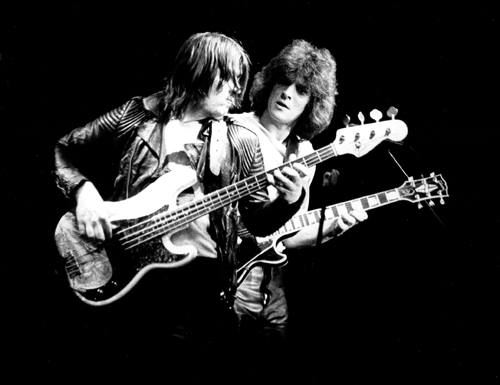
Contributed by Townsman Rick Massimo.
Everyone has certain forms of music they prefer to others. This is subjective. The impulse to try to describe one’s favorite music as objectively superior to others is what is commonly meant by rockism, a term that had a brief fling in professional and amateur music-critical circles a couple of years ago. See Kelefa Sanneh‘s seminal piece in the Sunday New York Times.
The strict-constructionist definition of rockism is an exaltation of the mythology of ’60s and early ’70s rock – teenage boys with guitars working out their feelings on paper in the afternoon and shouting them through microphones at night. (The loose-constructionist definition calls rockism an exaltation of any form of music on pseudo-objective grounds.) Rockism usually includes a derisive sneer toward some other form of music, usually whatever is currently popular on the charts.
It’s usually easier to point out rockism than to define it. It can lead to nauseous constructions such as “music that’s meaningful,” “socially conscious,” and particularly “music that’s built to last.” It also leads to magazine covers that show rock bands peering vaguely menacingly toward the peruser behind a banner headline screaming “Rock is Back!” to promote a story promoting an album that goes on to sell 120,000 copies.
The main problem with rockism is that it’s ahistorical, leading to ridiculously hypocritical stances such as “Today’s music is a bunch of vaguely menacing noise about nothing. Now excuse me while I go put on The Sonics” or “Today’s music is slickly produced and manufactured with a cold eye cocked toward the bottom line. Now excuse me while I go put on The Supremes.”
Given that Rock Town Hall is composed largely of white guys in their 40s and 50s, the prime rockist demographic, there’s surprisingly little rockism here – certainly less than the members who wear the tag as a badge of honor either realize or let on.
And if you’re getting the idea that rockism is something that professional music critics should keep in mind constantly but that nothing that even avid music fans, private citizens so to speak, should spend a lot of time worrying about, you’re probably right. Like what you like.


When I listen to a piece of music, whether rock or not, I have often asked myself “Does it rock?” If the answer is no, then I probably don’t like the music. If the answer is yes, I say, “This rocks.” And that means I like it.
My question for today’s Rockist Psychotherapy session is this: does the above phenom make me rockist?
Assuming you’re serious (always a dangerous assumption), I’d say no. You’re basing your opinions on subjective criteria (as are all of us) and acknowledging as much. It’s the fake objectivity (such as “Rock equals honesty and honesty equals good music,” or, more simply, “They play their own instruments”) that leads to rockism. I had hoped my post made this clear. Ah well.
I hadn’t wanted to open up a whole another therapy session. I was merely posting a definition to be filed away. If we want to amend the definition, I’m open to suggestion. But as I think I said before on the list (though perhaps not this clearly), no one here has to spend a lot of time worrying about whether they’re rockists. And those here who do have to worry about it, don’t have to worry about it here.
Rick wrote:
I thought you did a great job, but never think that a therapy session is unlikely to follow from even a new Glossary entry on Rock Town Hall. Newcomers should be aware that we’re all about picking at scabs, uncovering deeper wounds, and then healing. This section is a perfect place to hash out definitions, see what may need to be revised, disagree with each other, and ultimately, come to an even better understanding of the genre.